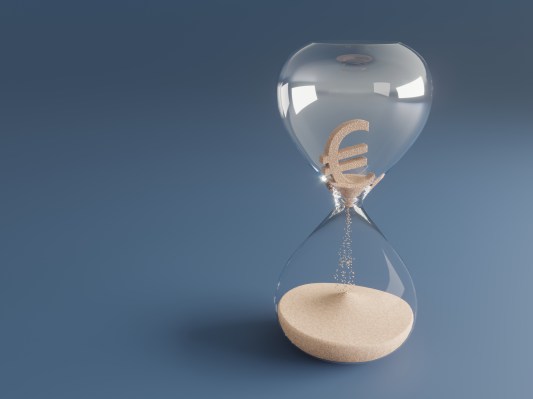A few weeks ago, Bloomberg reported that OMERS Ventures, the venture capital firm backed by the Ontario Municipal Employees’ Retirement System, was calling it quits in Europe just four years after opening a London office, hiring a team and setting aside $332 million to invest in the region.
At the outset, it may seem as if the lackluster state of the European venture market may have motivated the exit, but it appears that wasn’t the case. Instead, OMERS’ exit was rather due to logistics related to being a solo LP operation, a source familiar with the matter told TechCrunch+.
OMERS Ventures did not immediately respond to requests for comment.
Even though OMERS didn’t leave because of how things are in Europe right now, it wouldn’t have been that surprising if it did. The startup ecosystem in Europe doesn’t look that great at the moment, with lower deal and exit activity than the U.S., which itself is struggling.
Europe had only 1,332 deals in the first half of 2023, marking a decrease of 34.2% from the second half of 2022 and a decline of 60.8% compared to the same period a year earlier, according to PitchBook. The U.S. is the world’s biggest startup market at the moment, but the difference in deal count and activity is stark, even accounting for the general slowdown: The U.S. had 6,514 deals close in the first half of 2023.
European startups also seem to be finding it hard to exit, or are at least unable to land deals at valuations they might like. Through the first half of this year, startup exits only generated €3.5 billion ($3.8 billion) in total. If things don’t improve soon, the European market will not be able to surpass, or even match, the exit volume of any year from the last decade.
Investors from elsewhere in the world seem less interested, too. U.S. investors participated in 746 deals in Europe in the first half of 2023. compared to 1,704 a year earlier, according to PitchBook data. Given how much U.S. investors have pulled back from the region, OMERS wouldn’t have been out of place had it done so because of market conditions.
Navina Rajan, a senior analyst focused on EMEA private capital at PitchBook, told TechCrunch+ that while she doesn’t think U.S.-based investors, or those from outside the continent, are souring on Europe forever, she definitely feels the market may have a longer recovery ahead of it than the U.S does.
“The sentiment is [that] it is going to get worse before it gets better,” Rajan said. “I think we are not out of the woods yet, in terms of the correction.”
Rajan said the U.S. has better controlled its inflation problems than many countries in Europe. In July, inflation rose to 6.2% in the U.K., nearly double the 3.2% rate in the U.S.
She added that there may still be rate hikes, at least in the U.K., and doesn’t expect investment activity — especially from outside the region — to pick back up until economic pressures are relieved.
She also pointed out that the European startup ecosystem has seen a higher percentage of down-rounds so far this year compared to the U.S. Of course, down-rounds, in many cases, can be a better outcome for a company than a flat or up-round stuffed with predatory terms and liquidation preferences. Or not raising at all and dying.
That’s not to say that the European venture market is doomed. While OMERS is packing its bags, the continent still has many firms bullish on its market. San Francisco-based IVP, for example, announced a new London office to facilitate its focus on Europe the same week the OMERS news broke.
“There are funds and investors still coming in to take advantage of the European market,” Rajan said.
Plus, many of the venture firms that formalized their European strategies around the same time as OMERS remain optimistic.
Paul Murphy, a partner at Lightspeed, told TechCrunch+ that the firm opened its London office in 2019 as a way to formalize its 10-year strategy of investing in Europe. Murphy said the firm is still just as bullish as ever around what the European startup market will produce, especially in sectors like AI, fintech and climate.
“What is great about climate in Europe is, you have really good programs like the [European Investment Bank], and you have a consumer population a bit more ready to lean into climate solutions,” he said.
Murphy said that over the last few years, the market has become competitive enough that a firm needs to have boots on the ground if it wants to be successful in European early-stage dealmaking.
While he acknowledged that investors can no longer get into European companies at an extreme discount to their Silicon Valley counterparts as they could a few years ago, he did point out that European startups are still a little cheaper and can produce the same sizable outcomes. Plus, good talent in the region no longer leaves for Silicon Valley.
But in this more conservative funding environment, it may take a while for investors to regain their excitement around Europe. While Rajan thinks investors from outside the continent won’t flood back until the latter half of 2024, she’s confident they will eventually.
“There is still a lot of promise in Europe,” Rajan said. “[There are] so many technologies, and when it comes to ESG [and] electric vehicles, there are a lot of nascent industries that Europe has developed. There is definitely under-penetration.”
